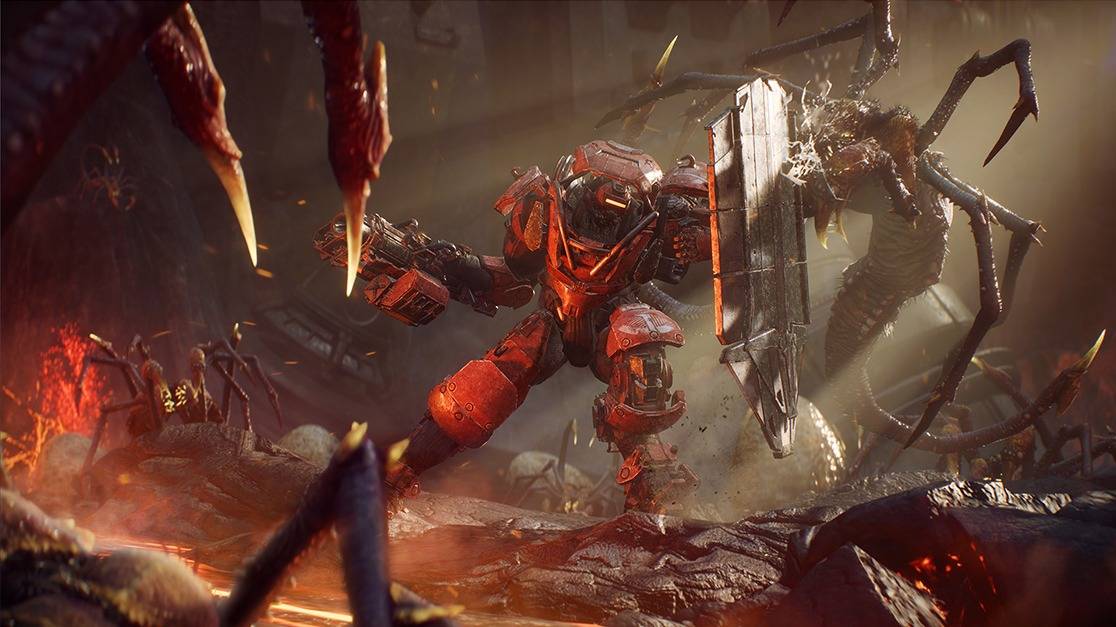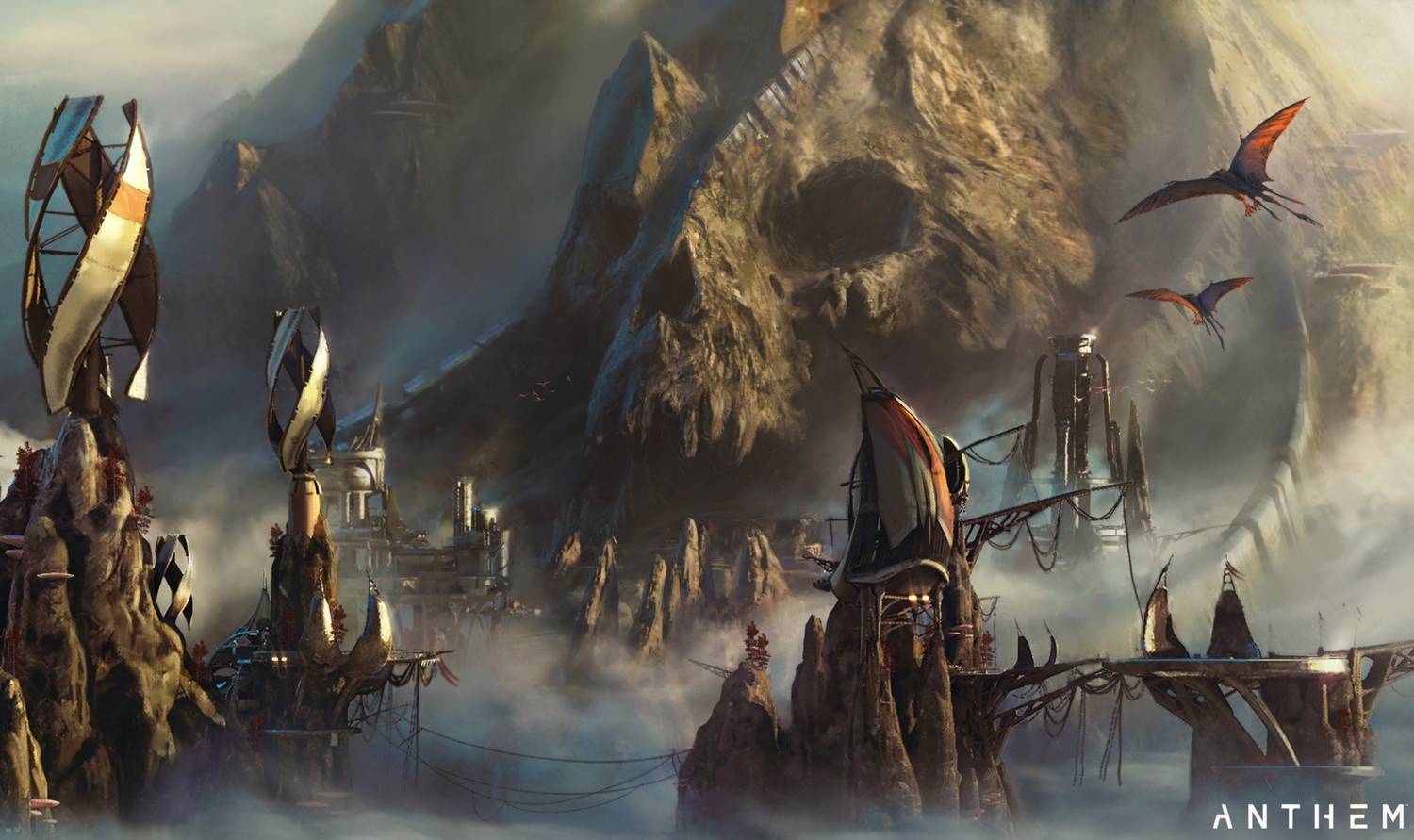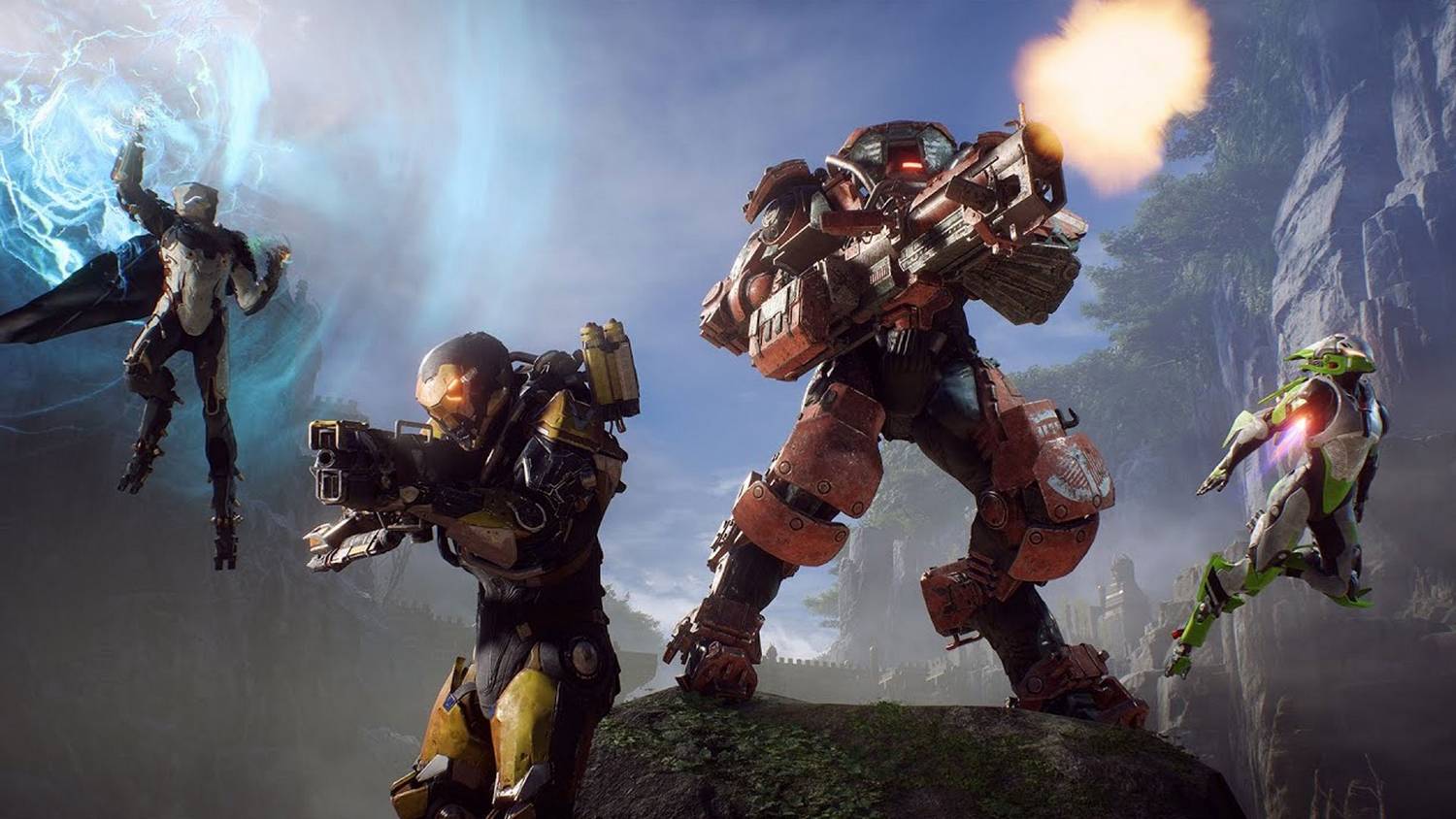A Final Admission: BioWare Realized “This Game Was Coming in on Fire”
Popular Now
 Rust
Rust
 BeamNG.drive
BeamNG.drive
 Stumble Guys
Stumble Guys
 CarX Street
CarX Street
 Valorant
Valorant
 Roblox
Roblox
 Free Fire Max
Free Fire Max
 The Legend of Zelda
The Legend of Zelda
 Fortnite
Fortnite
 Auto X Drift Racing 3
Auto X Drift Racing 3
 The story of BioWare’s Anthem is a cautionary tale of a beloved studio attempting a new genre under immense pressure. The game, which was released in 2019, was meant to be the next big live-service title from the creators of Mass Effect and Dragon Age, a potential “FIFA for BioWare.” Instead, it launched to a lukewarm reception and was ultimately shelved, its promises of a grand, evolving world never fulfilled. Now, in a stunning new admission, former BioWare executive producer Mark Darrah has revealed just how aware the developers were of the impending disaster, stating that they realized late in development that “this game was coming in on fire” after receiving a blunt directive from EA.
The story of BioWare’s Anthem is a cautionary tale of a beloved studio attempting a new genre under immense pressure. The game, which was released in 2019, was meant to be the next big live-service title from the creators of Mass Effect and Dragon Age, a potential “FIFA for BioWare.” Instead, it launched to a lukewarm reception and was ultimately shelved, its promises of a grand, evolving world never fulfilled. Now, in a stunning new admission, former BioWare executive producer Mark Darrah has revealed just how aware the developers were of the impending disaster, stating that they realized late in development that “this game was coming in on fire” after receiving a blunt directive from EA.
 “A Game in the 70s”: A Lowered Bar for a AAA Title
“A Game in the 70s”: A Lowered Bar for a AAA Title
In a recent series of candid videos, Darrah, a veteran of the studio, has been offering an unprecedented look into the troubled development of Anthem. He revealed that at a late stage in the game’s production, EA told the developers that they were “targeting a game in the 70s” on Metacritic, a statement that was a jarring wake-up call for a studio that had previously been known for its consistent output of critically acclaimed titles, often scoring in the high 80s and 90s.
This was a clear signal that even the publisher, Electronic Arts, had lost confidence in the game’s potential for critical success. A Metacritic score in the 70s is generally considered “mixed,” and for a AAA title from a studio like BioWare, it’s a sign of a significant failure. Darrah’s comments confirm what many in the gaming community had long suspected: that the game was in a state of chaos internally and that the final product was rushed to meet an immovable deadline.
The Road to a 70s Score: A Troubled Development Cycle
Darrah’s revelations are just the latest in a long line of stories detailing Anthem‘s chaotic development. The game, internally codenamed “Dylan,” was in pre-production for six years before its full development began, a period marked by a “lack of vision” and a constant struggle with the Frostbite engine, which was not well-suited for a game of Anthem’s scope.
The project’s struggles were compounded by a constant change in leadership and a fundamental “misunderstanding about multiplayer games” by a studio that had built its reputation on single-player, narrative-driven RPGs. BioWare’s leadership, according to Darrah, was too focused on crafting a single protagonist’s story, a model that simply doesn’t work in a multiplayer looter-shooter. The game’s one shining feature, its incredible flying mechanic, was also its “worst feature” because it broke the game and was not properly integrated into the combat and level design.
 The Fallout: A Damaged Reputation and a Canceled Future
The Fallout: A Damaged Reputation and a Canceled Future
The release of Anthem was, as Darrah put it, a moment where the game was “coming in on fire.” It was plagued by technical bugs, repetitive gameplay, and a thin, unengaging story. The community’s response was brutal, and the live-service model, which relies on consistent updates and a strong player base, never got off the ground. EA officially canceled the planned overhaul of the game, known as Anthem Next, in 2021, and the game’s servers are expected to be shut down in January.
The entire saga is a stark reminder of the dangers of a publisher’s focus on a live-service model over creative vision. Darrah’s comments serve as the final autopsy, a confirmation that the developers themselves were fully aware of the game’s fatal flaws long before it ever hit the shelves. The high CPC keywords for these discussions, such as “Anthem post-mortem,” “BioWare new games,” “EA live-service failure,” and “game development behind the scenes,” all reflect a continued fascination with one of the most prominent failures in recent gaming history.









